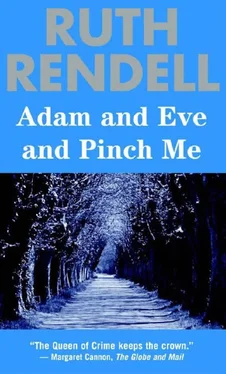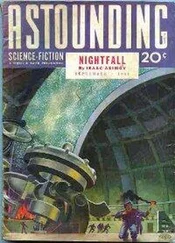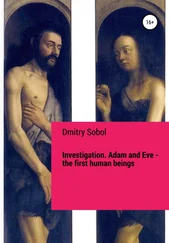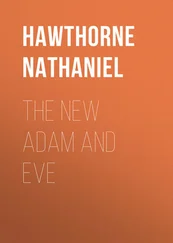He’d kept the pages of the paper with her pictures but he’d read the story so many times he knew it by heart. She hadn’t told the reporter a word about being a Gypsy-he’d never believed that anyway-or about a previous marriage or Watling not Leach being her maiden name. Most troubling of all, she very obviously hadn’t mentioned the children’s existence. He knew enough about reporters-he’d once been involved with quite a well-known freelance journalist-to be aware that it’s useless for an interviewee to implore the interviewer “not to say anything about” a secret once disclosed. What you’ve said is what you get. Leaving out bits of what you’d said was another matter, taking things out of context to change the sense. This was different. In a story of this kind there was no chance that if Zillah had told the Mail she had two small children, whether born inside or outside marriage, its reporter would have meekly agreed to keep quiet. So she hadn’t told them. What had she done with his children?
Fiona came downstairs looking lovely in a white suit with a very short, tight skirt and high-heeled black patent shoes. He felt the stirrings of lust. An evening spent in bed would have done a lot to dispel his anxieties about Eugenie and Jordan, but it wasn’t to be. His fault; he’d suggested dinner.
A taxi appeared, coming down Fortune Green Road. Just as well, since Fiona couldn’t have walked another yard in those heels. He was going to have to meet Zillah and talk to her, see his kids, he’d a right to see his kids, they were his . Their paternity was something he’d never disputed. They both looked exactly like him, as reliable a guide, he’d always thought, as any DNA test.
“Try not to let it prey on your mind, Jeff.”
For a moment he was afraid she’d read his thoughts. Then he realized that, of course, she imagined he was brooding on his “ex-wife” remarrying.
“You’ve got me now and we’ve a new life ahead of us.”
It might not be a bad idea to let Fiona go on thinking he was unhappy about his final parting from Zillah. In the future, if he seemed preoccupied or absent-minded or just silent, she’d attribute it to this. “I know,” he said. “Don’t think I’m not absolutely content with that. I’m thinking of my son and my little girl. And it’s just that…well, she was my first love.” He took her hand. “And you’re my last. First in my heart and last in my life.” The taxi turned into Blenheim Terrace and he felt in his pockets. “Have you got any change, darling? I’ve only a twenty-pound note.”
Fiona paid the taxi driver. When they were at their table she asked him a bit more about Zillah. “If you wanted a meeting with her, talk it through, that sort of thing, I wouldn’t mind.”
In a way this was his opportunity. It would be wiser not to take it. She might want to come with him or meet Zillah herself. He nearly shuddered. Fiona, with her house, her money, her inheritance, her job, was (as he put it to himself) the best woman who had ever happened to him. “No, my darling. I want to put it all behind me.”
He studied the wine list. In spite of what he’d told Fiona, he wouldn’t use the money he’d made on the horse called Website but instead would pay with the American Express card he’d found in another restaurant, fallen on the floor under a table in Langan’s, where he’d been as the guest of a woman he’d picked up on the Duke of York steps. The card had belonged to one J. H. Leigh and it was this find of his that led to his assuming the name of Leigh when he first met Fiona. He was still Lewis with funny little Minty Knox at the time and for a new identity had been toying with the idea of Long or Lane, but Leigh it was to be. He’d used the card sparingly at first and for small items, always expecting to be told it had been canceled. Nothing happened. He paid for meals with it, even bought clothes for Fiona with it, though he never dared indulge in jewelry.
Inevitably, he’d speculated as to why. Who was this Leigh who was so rich and profligate that he not only didn’t bother to report the loss of his American Express card but continued to pay the bills for it that must arrive at his home each month? Then it came to him. This wasn’t a man at all but a woman kept by a man, a wife or girlfriend, whose AmEx accounts were paid for by husband or lover with no questions asked. Had she been afraid to tell him she’d lost the card? Perhaps been in some situation or place she shouldn’t have been in when the theft or loss happened? Or had she so many cards that she didn’t notice the disappearance of one of them?
He thought along these lines because underhand behavior, deceit, pulling fast ones, and getting something for nothing were practices dear to his heart. One day the card would be stopped, but that might be a long way off and meanwhile he was cashing in.
“I said, are you going to have the grilled vegetables or the smoked salmon? Darling, you’ve not been listening.”
“Sorry,” he said. “I was thinking-well, you know what I was thinking.”
Luckily, she didn’t. How was he going to get hold of Zillah? Phone her? It wouldn’t be hard to find her number. Call round ? Once, years ago, while Zillah was pregnant with Eugenie and they were living in that dump near Queen’s Park station, they’d been asked round to drinks by this Melcombe-Smith at his place in Pimlico and they’d gone. Ghastly it had been and nearly turned him into a socialist. Jims, as he was called, might still be living there; it had been only six or seven years. Aghast, he realized he didn’t exactly know the age of his daughter. But he loved her, he knew that, she was his and he had to see her. “Listen to this,” he said. “Adam and Eve and Pinch Me went down to the river to bathe. Adam and Eve were drownded. Who was saved?”
“Come off it, Jeff.” Fiona’s patience had snapped. “Save it for this baby we’re supposed to be having next year. I’m grown-up.”
THE ATTENTION SHE was getting was in many ways attractive and flattering. Zillah hadn’t expected all that publicity in the Mail on Sunday , and when she first saw the pictures and read the respectful story about herself and Jims, she’d been entranced. Other people had seen it too and rung up to congratulate her. Only one had asked why Eugenie and Jordan weren’t mentioned and this woman had supplied her own answer: “I suppose you want to protect them from media attention.”
That was exactly right, Zillah had said. She’d had a few days in which to relax and enjoy living in Abbey Gardens Mansions, appreciate the comforts of her new home, so vastly superior even to the Battersea flat, and to decide it was time to fetch the children. They’d been staying with her parents in Bournemouth since two days before the wedding, but she was beginning to miss them and she wanted them back. The publicity was past. She was realizing the truth of what she’d guessed all along, that Jims wasn’t famous, was a mere backbench MP and an opposition MP at that, and that all that had attracted the press were her and Jims’s good looks. And maybe the fact that everyone had thought he was gay and about to be “outed.”
The children could come back, go out for walks with her, be driven about by her in her nice new silver Mercedes, go to school in Westminster, and no one would take a blind bit of notice. So Zillah thought-until the first journalist phoned.
“I’m not disturbing your honeymoon, I hope?”
“We’re not having a honeymoon till Easter,” said Zillah, who wasn’t much looking forward to this sex-free excursion to an island in the Indian Ocean with nothing to do but drink and chat to Jims all day.
“Not even a tiny scrap of one?” the woman asked. She worked for a national daily. “I’m calling to beg for an interview. Our Thursday slot. I expect you know what I mean.”
Читать дальше











